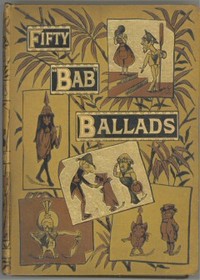Ballad: Peter The Wag
byPeter The Wag found joy not in enforcing the law with stern authority, but in coloring his duties with mischief and mirth. A constable by uniform yet a jester by nature, Peter made his beat into a stage for playful deceit. Those who turned to him for the time received an answer far from accurate, often an hour too soon or too late, depending on his mood. When asked for directions, he responded with conviction, sending travelers off in curious loops and far-flung paths. While some giggled at the unexpected detour, others grumbled in confusion, unsure whether they’d been pranked or misunderstood. To Peter, the city was a playground, and its inhabitants unwilling cast members in his ongoing comedy. He teased clergy with exaggerated bows and offered schoolboys advice on how to chase constables. Beneath his cap and badge, he wore a grin that refused to fade, seeing every question as a setup for amusement.
His humor, however, became a subject of mounting irritation. What once passed as harmless jest gradually turned into widespread annoyance. Residents from distant neighborhoods began sharing stories of his antics, and a shared frustration grew like fog over London. From barmaids to bankers, people remembered a time Peter had sent them circling. But Peter didn’t care—at least not outwardly. He doubled down, smiling even broader when complaints reached his ears. To him, the discontent was merely confirmation that his humor had landed, even if the audience hadn’t laughed. Yet behind the smirk, a silent pride kept him from acknowledging the toll his behavior had taken. He believed himself a trickster, not a tormentor, and saw no reason to change his ways. The very fabric of his identity was tied to those harmless deceits, spun like thread through every shift he walked.
Fate, ever ironic, crafted its perfect punchline when Peter lost his way in Soho. On an afternoon thick with summer haze, he wandered into a tangle of alleyways and forgot his own steps. Too proud to admit confusion, he kept walking—turning where he shouldn’t, backtracking with mounting panic. The winding streets of Soho seemed to mock him at every turn. Locals whispered as they spotted the once-confident constable glancing around with hesitation. Rumors flew quickly through taverns and street corners: the trickster had tricked himself. Soon, a crowd gathered—not to help, but to watch, curious to see the master of misdirection caught in his own web. The joke had finally turned.
Peter’s entrapment extended far beyond a single moment. For days, he was seen in the same twisted maze of lanes: Gerrard, Bear, Rupert, Frith, Dean—each new turn another disappointment. People followed his movements with giddy anticipation, some even placing friendly bets on how long he would remain lost. It became a city-wide spectacle. Newsboys shouted headlines about the wandering constable, and poets scribbled rhymes about the jester who lost his way. Tourists were drawn to Golden Square in hopes of spotting the lawman pacing in confusion. The streets he once navigated with deceptive ease had become a puzzle he could not solve. Irony now clung to his uniform like a second skin.
The weight of the ridicule began to chip away at Peter’s spirit. The laughter he once delighted in was now aimed squarely at him. And yet, in his embarrassment, something else surfaced—a glimpse of humility. No longer could he hide behind laughter or dodge with wit. His pride, once his shield, had led him deeper into the very trap he often set for others. For the first time, Peter stood not as an actor in a play, but as a man forced to face the consequences of his mischief. It was a quiet transformation, one not marked by grand speeches but by small changes in behavior.
Eventually, Peter found his way out—not just from Soho, but from the routine of his old self. Those who once avoided him began to approach, and to their surprise, they were greeted not with false turns, but with earnest directions. He hadn’t lost his spirit entirely; the sparkle in his eye remained. But now, his humor came with discretion, and his jests carried warmth instead of confusion. The legend of his misadventure lived on, retold in pubs and passed through generations as a cautionary tale wrapped in humor. Peter became more than a prankster—he became a symbol of the fine line between wit and wisdom. And through that transformation, he reminded a city that even the most playful hearts sometimes need a moment of humbling to find their truest form.

